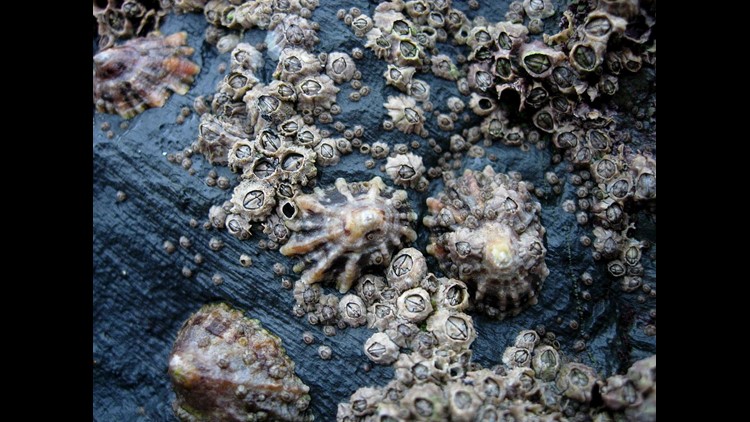SAN DIEGO (CNS) - The University of San Diego announced Thursday that it was awarded a $100,000 grant from the National Science Foundation to track barnacles to learn how El Nino affects marine life.
This year's strong El Nino provides an opportunity to study how coastal marine species are affected by the warming sea surface temperatures and changes
in ocean currents, according to Nathalie Reyns, associate professor of environmental and ocean sciences.
"We have a poor understanding of how coastal marine species are influenced by El Nino,'' Reyns said.
The research "has implications for understanding how populations change from year to year, which is also important for understanding the populations
of commercially important species,'' she said. ``Our study is also occurring within two marine protected areas off the coast of San Diego and can inform us about their effectiveness.''
Her research will focus on barnacles because they have a life cycle similar to those of many fish and other organisms, such as crabs.
Adult barnacles live attached to rocks along beaches, and they release larvae that develop in the coastal ocean. During this time, the larvae will be influenced by the way currents move and the environmental conditions of the ocean, according to the research team.
Reyns said El Nino can change the way ocean currents move, in addition to warming the water, and the ability of the larvae to make it back to coastal habitats may be hampered.
Researchers will measure the currents with oceanographic instruments, the distribution and abundance of barnacle larvae in the water, and the population of baby barnacles that make it to shore -- using special plates attached to rocks in La Jolla.
Reyns has already been studying larval transport with colleagues from the Woods Hole Oceanographic Institution of Massachusetts, but their funding
was close to running out. The NSF grant will allow the USD research to continue.
"By conducting this study, we will have pre, current and post-El Nino data,'' Reyns said. ``El Nino is predicted to weaken throughout the spring and
into summer, so it was crucial that we begin sampling quickly to capture changes in the ocean conditions.''
Two USD graduate students and 10 undergraduates are gaining hands-on research experience from the work, according to USD.
UCSD awarded $100K grant to study El Nino's affect on marine life
The University of San Diego announced Thursday that it was awarded a $100,000 grant from the National Science Foundation to track barnacles to learn how El Nino affects marine life.



